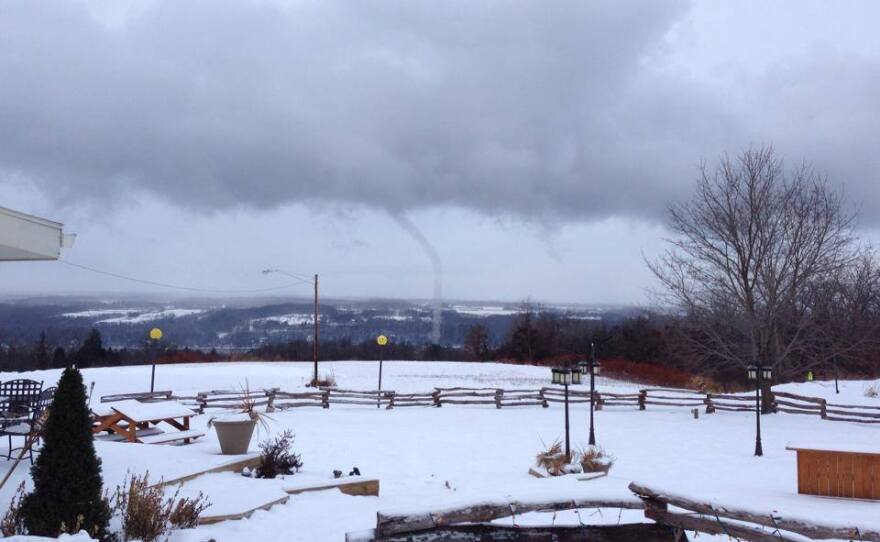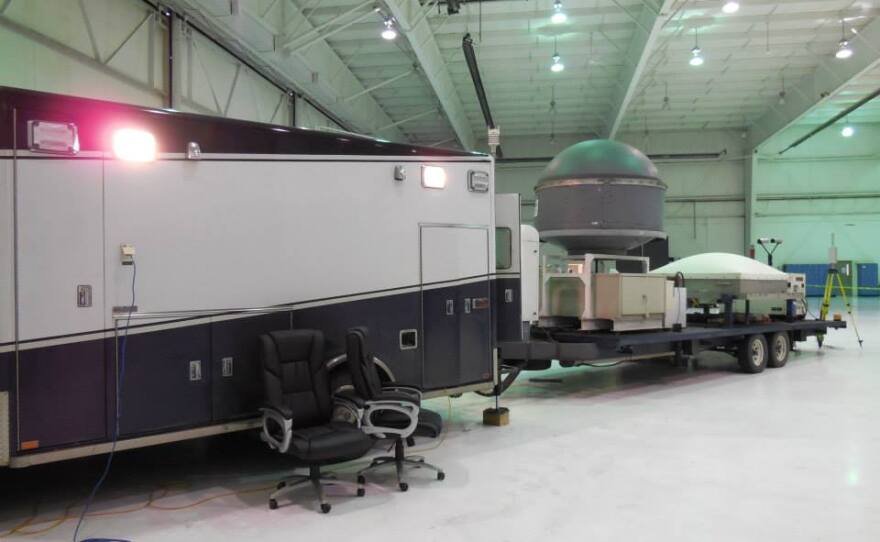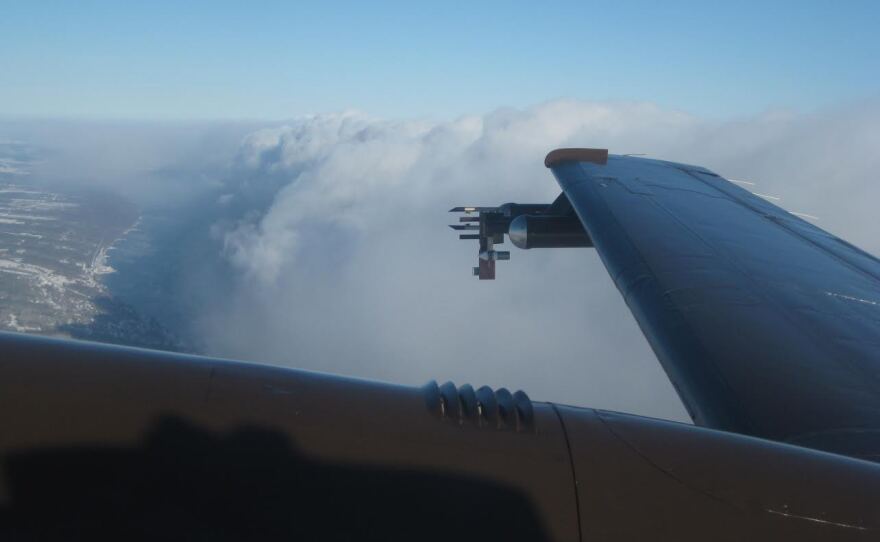While most of those living along the eastern shore of Lake Ontario and the Tug Hill Plateau have been cursing this winter and its seemingly constant snowfall, a group of researchers from 11 colleges, including SUNY Oswego, couldn't have been happier with the situation.
Jake Mulholland, a senior majoring in meteorology, was one of the students and professors from SUNY Oswego who participated in the Ontario Winter Lake-effect Systems Project (OWLeS), along with counterparts from 10 other universities. He says the team was able to confirm several theories while learning new things about the region's lake effect snowfall.
"We got 24 events. We were planning for eight events, so the frequency was definitely higher," Mulholland said. "We actually saw circulations within these bands, which are similar to tornadic thunderstorms in the Great Plains, which to me was pretty surprising. Small scale, obviously, circulation, but relating it to a tornado in the Midwest is kind of crazy to think about."
Mulholland says the results aren't just important for scientists who want to know a little bit more about the area's weather patterns.
"We go out there and take these measurements to put into the forecast models, the computer models, that we then give the public the forecast," Mulholland said. "With this project, it's going to go a long way in predicting, 'Okay, the band's going to set up over Oswego and not Pulaski,' or vice versa, so that people can prepare."
He says the group only has preliminary findings right now, but results should be available in the coming months.
And although the study provided the team with a bounty of information, it didn't come without its share of problems. At one point, heavy snowfall managed to catch the group off guard, leaving one of their mobile Doppler vehicles, used to collect weather data like wind speeds and air temperatures, stranded for a short time near Sodus.








